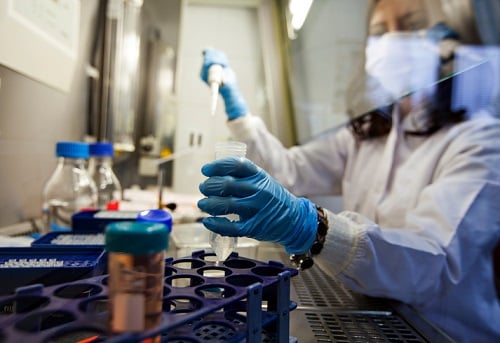Scientists are speaking out against a law prohibiting genetic manipulation

Canadian geneticists may be lagging behind their global peers because of long-standing legislation against creating changes to the DNA of a cell or embryo that might be transmitted to descendants.
US scientists can perform research into gene therapies like CRISPR because they are allowed to alter the genomes of embryos, as long as they don’t let those embryos develop into babies. However, Canada takes a harder line: according to the country’s Assisted Human Reproduction Act, making genetic changes to an embryo that can be passed on is illegal under any circumstances.
“The main logic here is a slippery slope logic,” Vardit Ravitsky, a University of Montreal bioethicist, told Gizmodo. She explained that the law was created to address ethical concerns around human cloning. “But embryos don't fall by chance into a uterus. By banning research, you are banning research that is not just about making babies.”
As the law stands, Canadian scientists that perform even basic “germline editing” research risk a hefty fine or jail time of up to 10 years. “Scientists here… have the technical capacity to do this research and they have these good research questions,” Ravitsky said. “The only reason they're not doing it is legal.”
From her perspective, Canada would be better off with a law closer to the one in the US — and others agree. At a recent annual meeting of stem cell and regenerative-medicine researchers, Bartha Knoppers, a health-policy expert at McGill University, presented a consensus statement from Ravitsky and others.
“Basic and pre-clinical research on human germ cells and embryos in the earliest stages of development should be allowed,” the statement said. The group also called for the legalisation of “three-parent babies,” a procedure where risks of mitochondrial disease in an embryo are eliminated by introducing a tiny bit of donor DNA.
The group recently formed the Coalition for Research on Informed Science Policy (CRISP) to advocate for the policy changes — which would probably require an act of Parliament to change Canada’s federal law. But a statement from Canada’s health ministry might open the door to a reinterpretation that would let scientists do some gene-therapy research in embryos.
“People think we want the Wild West, but if you look at the UK they actually have more robust oversight even though they are allowing this research to happen,” said Timothy Caufield, a health policy expert at the University of Alberta. “Safety concerns don't justify a criminal ban; they justify appropriate oversight.”
Related stories:
Canadian insurers out-of-date on genetic testing, says non-profit group
Genetics-based treatment against leukaemia gets US approval
US scientists can perform research into gene therapies like CRISPR because they are allowed to alter the genomes of embryos, as long as they don’t let those embryos develop into babies. However, Canada takes a harder line: according to the country’s Assisted Human Reproduction Act, making genetic changes to an embryo that can be passed on is illegal under any circumstances.
“The main logic here is a slippery slope logic,” Vardit Ravitsky, a University of Montreal bioethicist, told Gizmodo. She explained that the law was created to address ethical concerns around human cloning. “But embryos don't fall by chance into a uterus. By banning research, you are banning research that is not just about making babies.”
As the law stands, Canadian scientists that perform even basic “germline editing” research risk a hefty fine or jail time of up to 10 years. “Scientists here… have the technical capacity to do this research and they have these good research questions,” Ravitsky said. “The only reason they're not doing it is legal.”
From her perspective, Canada would be better off with a law closer to the one in the US — and others agree. At a recent annual meeting of stem cell and regenerative-medicine researchers, Bartha Knoppers, a health-policy expert at McGill University, presented a consensus statement from Ravitsky and others.
“Basic and pre-clinical research on human germ cells and embryos in the earliest stages of development should be allowed,” the statement said. The group also called for the legalisation of “three-parent babies,” a procedure where risks of mitochondrial disease in an embryo are eliminated by introducing a tiny bit of donor DNA.
The group recently formed the Coalition for Research on Informed Science Policy (CRISP) to advocate for the policy changes — which would probably require an act of Parliament to change Canada’s federal law. But a statement from Canada’s health ministry might open the door to a reinterpretation that would let scientists do some gene-therapy research in embryos.
“People think we want the Wild West, but if you look at the UK they actually have more robust oversight even though they are allowing this research to happen,” said Timothy Caufield, a health policy expert at the University of Alberta. “Safety concerns don't justify a criminal ban; they justify appropriate oversight.”
Related stories:
Canadian insurers out-of-date on genetic testing, says non-profit group
Genetics-based treatment against leukaemia gets US approval



